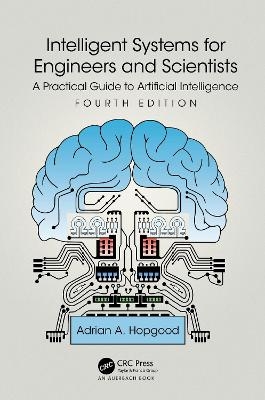
Intelligent Systems for Engineers and Scientists
CRC Press (Verlag)
978-1-032-12676-0 (ISBN)
The fourth edition of this bestselling textbook explains the principles of artificial intelligence (AI) and its practical applications. Using clear and concise language, it provides a solid grounding across the full spectrum of AI techniques, so that its readers can implement systems in their own domain of interest.
The coverage includes knowledge-based intelligence, computational intelligence (including machine learning), and practical systems that use a combination of techniques. All the key techniques of AI are explained—including rule-based systems, Bayesian updating, certainty theory, fuzzy logic (types 1 and 2), agents, objects, frames, symbolic learning, case-based reasoning, genetic algorithms and other optimization techniques, shallow and deep neural networks, hybrids, and the Lisp, Prolog, and Python programming languages. The book also describes a wide range of practical applications in interpretation and diagnosis, design and selection, planning, and control.
Fully updated and revised, Intelligent Systems for Engineers and Scientists: A Practical Guide to Artificial Intelligence, Fourth Edition features:
A new chapter on deep neural networks, reflecting the growth of machine learning as a key technique for AI
A new section on the use of Python, which has become the de facto standard programming language for many aspects of AI
The rule-based and uncertainty-based examples in the book are compatible with the Flex toolkit by Logic Programming Associates (LPA) and its Flint extension for handling uncertainty and fuzzy logic. Readers of the book can download this commercial software for use free of charge. This resource and many others are available at the author’s website: adrianhopgood.com.
Whether you are building your own intelligent systems, or you simply want to know more about them, this practical AI textbook provides you with detailed and up-to-date guidance.
Dr. Adrian Hopgood is Professor of Intelligent Systems and Director of Future & Emerging Technologies at the University of Portsmouth in the UK. He is a Chartered Engineer, Chartered IT Professional, Fellow of the BCS (British Computer Society, the Chartered Institute for IT), and a committee member for the BCS Specialist Group on Artificial Intelligence. He earned his BSc from the University of Bristol, PhD from the University of Oxford, and MBA from the Open University. After completing his PhD, he joined the AI team of Systems Designers PLC. That experience set the direction of his career toward the investigation of intelligent systems and their practical applications. After leaving Systems Designers, he spent 14 years at the Open University and remains attached as a visiting professor. During that period, he also spent two years at Telstra Research Laboratories in Australia, investigating the role of intelligent systems in telecommunications. He has subsequently worked for Nottingham Trent University, De Montfort University, Sheffield Hallam University, and the University of Liège, before joining the University of Portsmouth. Despite assuming several senior management positions during his career, he has never lost his passion for intelligent systems. He has supervised 20 PhD projects to completion and published more than 100 research articles. His website is adrianhopgood.com.
1. Introduction, 2. Rule-Based Systems, 3. Handling Uncertainty: Probability and Fuzzy Logic, 4. Agents, Objects, and Frames, 5. Symbolic Learning, 6. Single-Candidate Optimization Algorithms, 7. Genetic Algorithms for Optimization, 8. Shallow Neural Networks, 9. Deep Neural Networks, 10. Hybrid Systems, 11. AI Programming Languages and Tools, 12. Systems for Interpretation and Diagnosis, 13. Systems for Design and Selection, 14. Systems for Planning, 15. Systems for Control, 16. The Future of Intelligent Systems References.
| Erscheinungsdatum | 02.12.2021 |
|---|---|
| Zusatzinfo | 191 Line drawings, black and white; 191 Illustrations, black and white |
| Verlagsort | London |
| Sprache | englisch |
| Maße | 156 x 234 mm |
| Gewicht | 950 g |
| Themenwelt | Informatik ► Theorie / Studium ► Künstliche Intelligenz / Robotik |
| Technik ► Elektrotechnik / Energietechnik | |
| Technik ► Umwelttechnik / Biotechnologie | |
| ISBN-10 | 1-032-12676-0 / 1032126760 |
| ISBN-13 | 978-1-032-12676-0 / 9781032126760 |
| Zustand | Neuware |
| Informationen gemäß Produktsicherheitsverordnung (GPSR) | |
| Haben Sie eine Frage zum Produkt? |
aus dem Bereich


